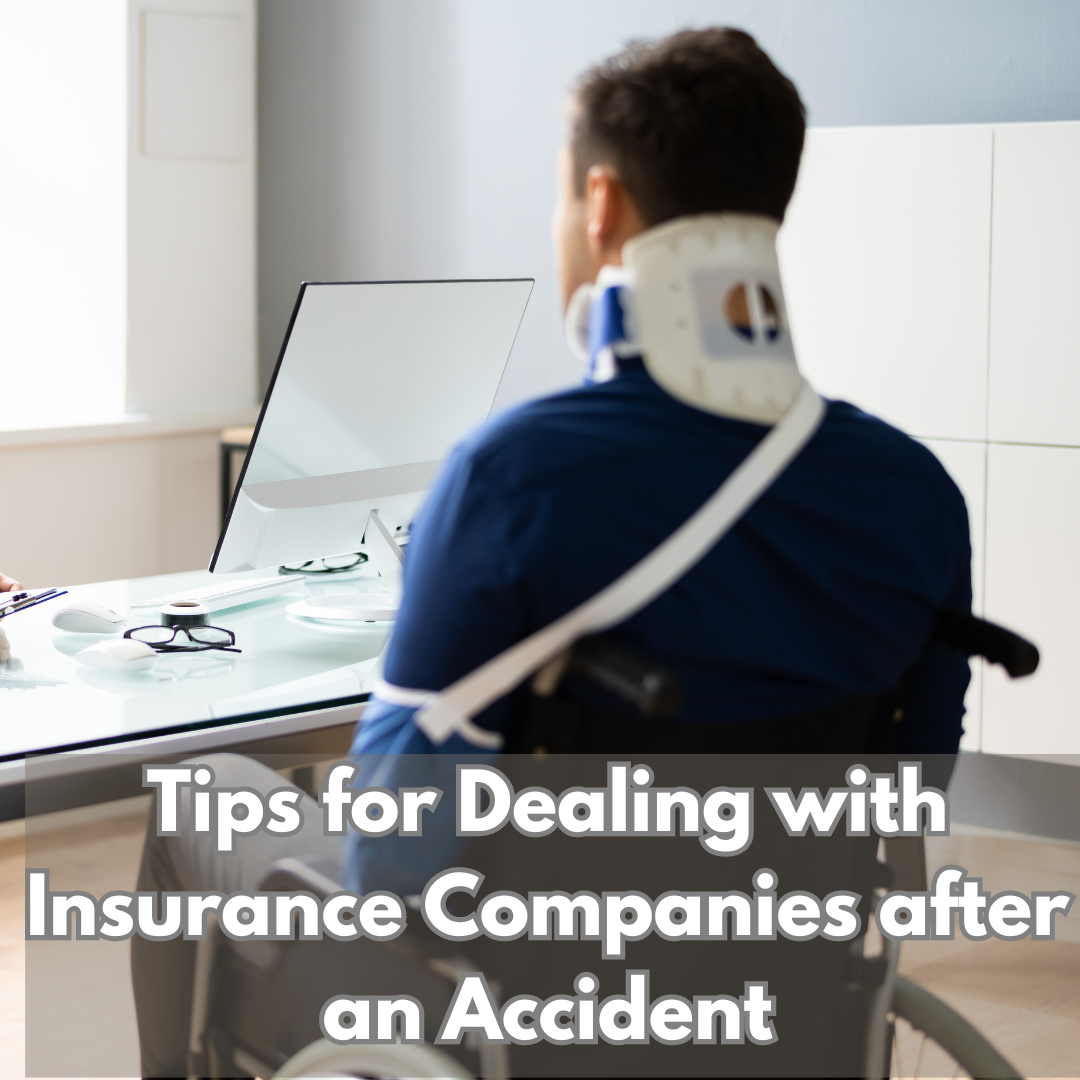|
Accidents, whether they involve cars, work, or even a simple slip and fall, can have devastating effects on our lives. From physical injuries to psychological trauma, handling the aftermath of an accident is never easy. As if dealing with the heavy toll on your well-being wasn't trying enough, navigating through the complex web of insurance claims and legal matters often adds a layer of stress to the situation.
When dealing with insurance companies after an accident, it is crucial to take certain legal precautions to protect your rights and ensure that you receive fair compensation for your losses. Insurance adjusters are trained professionals focused on minimizing their company's financial liability; it's their job to assess the situation, calculate payouts, and, often, use tactics that can save the company money. As much as they may appear empathetic and accommodating, remember that their primary goal is to serve the best interests of the insurance company and not your interests as the victim. Thus, they may employ tactics that lead to a quick and low settlement. In this article, we will discuss the essential legal precautions you need to take when dealing with insurance companies after an accident. We will delve into topics such as how to handle communication with insurance adjusters, the importance of seeking legal counsel, gathering and documenting evidence, and understanding the role of your own insurance policy in covering your losses. We will also shed light on common pitfalls to avoid and misconceptions surrounding insurance claims. Understanding Your Insurance Policy Before diving into the intricacies of dealing with insurance companies, it's essential to have a thorough understanding of your own insurance policy. Familiarize yourself with your coverage limits, deductibles, and exclusions to avoid any surprises during the claims process. Additionally, it is critical to understand which situations necessitate contacting your insurance company, such as instances where another party may not have adequate insurance coverage for accidents involving uninsured or underinsured drivers. Therefore, uninsured and underinsured insurance is a crucial component of your insurance coverage. If possible, review your insurance policy with a lawyer or an insurance expert to gain deeper insights and avoid overlooking crucial details. Gaining a comprehensive understanding of your policy can ensure that you are well-prepared to communicate with insurance adjusters and have a clear idea of the compensation you are entitled to receive. Communicating with the Insurance Adjuster One of the most critical aspects of dealing with insurance adjusters is maintaining clear and concise communication. When speaking to an adjuster, it's vital to stay calm and professional throughout all interactions. Avoid providing any speculative statements or opinions about the accident, and stick to sharing only the facts surrounding the incident. In your conversations, avoid admitting fault or discussing the specifics of your injuries until you have sought legal counsel and proper medical evaluations. Insurance adjusters may ask you to provide a recorded statement of the accident. While some states mandate cooperation with an adjuster from your insurance company, you are not required to provide a recorded statement to the opposing party's adjuster. Keep in mind that any recorded statement will ultimately be used against you during the claims process. Therefore, it's best to consult with an attorney before making any official statements. Seek Legal Counsel While it may be tempting to handle the insurance claims process on your own, seeking guidance from an experienced personal injury lawyer can be invaluable to your case. An attorney can help you navigate the complex legal landscape of insurance claims, ensuring that your rights are protected and that you receive fair compensation. Attorneys are well-versed in negotiation tactics used by insurance adjusters and can help counter their strategies, maximizing the settlement you receive. Moreover, having legal representation sends a clear message to insurance companies that you are serious about protecting your rights, leading them to treat your claim with greater care. It's important to find a personal injury lawyer with a strong history of success in similar cases, and who can provide you with personal attention and experienced representation. Gathering and Documenting Evidence To build a robust case and secure fair compensation, it's crucial to gather and document evidence that supports your claim. Evidence may range from police reports and medical records to photographs, witness testimonies, and accident reconstruction reports. Begin gathering this information as soon as possible, as certain evidence may become increasingly difficult to obtain with time. Providing detailed documentation of your injuries and their impact on your quality of life is essential to substantiate your claim. This includes all pertinent medical records, as well as documentation of any property damage, lost wages, and other expenses related to the accident. Maintain a personal injury journal to record your physical and emotional pain, the impact on daily activities, and any changes in your relationships or social life due to the accident. A comprehensive record of your personal experience will help bolster your claim and demonstrate the full extent of your losses. Protecting Your Rights and Securing Fair Compensation Dealing with insurance companies after an accident can be a daunting and complex process, but by taking the appropriate legal precautions, you can protect your rights and secure the compensation you deserve. Be proactive in understanding your insurance policy. It is important to seek legal counsel from an experienced personal injury lawyer, such as our experts at Lowe Dreesen Miller, and gather and document all pertinent evidence to build a strong case. Your legal counsel should maintain clear communication with insurance adjusters, being cautious to ensure that you do not to admit fault or provide speculative statements about the incident. By adhering to these best practices, you'll be better equipped to navigate the insurance claims process and ensure you receive a fair settlement and compensation, ultimately safeguarding your financial and emotional well-being during this challenging time.
0 Comments
Leave a Reply. |
Categories |
|
Lowe Dreesen Miller LLC
117 North Benton Street Waynesville, Missouri 65583 Telephone: (573) 774-3122 Facsimile: (573) 774-6164 |
Lowe Dreesen Miller LLC
120 S. Jefferson Ave, Suite 111 St. James, MO 65559 Telephone: (573) 774-3122 Facsimile: (573) 774-6164 |
Lowe Dreesen Miller: Don't Let Justice Wait (573-888-8888 or 636-888-8888)
Contact Lowe Dreesen Miller anytime:
573-888-8888
636-888-8888
Site powered by Purpose Launch Marketing LLC


